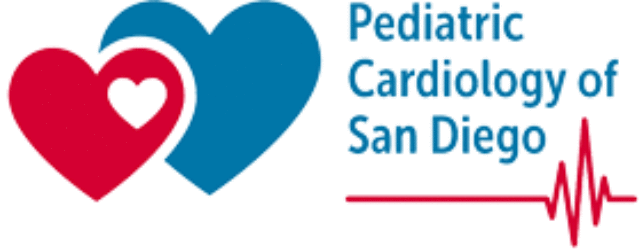
Fetal Cardiology
Congenital heart disease is one of the most common congenital fetal anomalies. Accurate prenatal diagnosis offers potential clinical benefit with regard to infant outcome. Fetal echocardiography is a detailed sonographic evaluation of the heart of a developing fetus. Fetal echocardiogram is used to identify and characterize fetal heart anomalies before delivery. At Pediatric Cardiology of San Diego, we perform fetal echocardiograms after 18 weeks gestation, occasionally sooner.
Your obstetrician or perinatologist may refer you for a fetal echo for a number of different reasons. According to AIUM (American Institute of Ultrasound in Medicine) guidelines, common indications for a detailed scan of the fetal heart include but are not limited to the following:
-
Maternal Indications
- Autoimmune antibodies, anti-Ro (SSA) / anti-La (SSB)
- Familial inherited disorders (eg, 22q11.2 deletion syndrome)
- In vitro fertilization
- Metabolic disease (eg, diabetes mellitus and phenylketonuria)
- Teratogen exposure (eg, retinoids and lithium)
-
Fetal Indications
- Abnormal cardiac screening examination
- First-degree relative of a fetus with congenital heart disease
- Abnormal heart rate or rhythm
- Fetal chromosomal anomaly
- Extracardiac anomaly
- Hydrops
- Increased nuchal translucency
- Mono chorionic twins
No special precautions or preparations are required prior to the test, and there are no risks associated with it. The test will take approximately about one hour and you will meet with our fetal cardiologist immediately after the test to discuss the result. The doctor will spend as much time as is necessary providing in-depth counseling.
